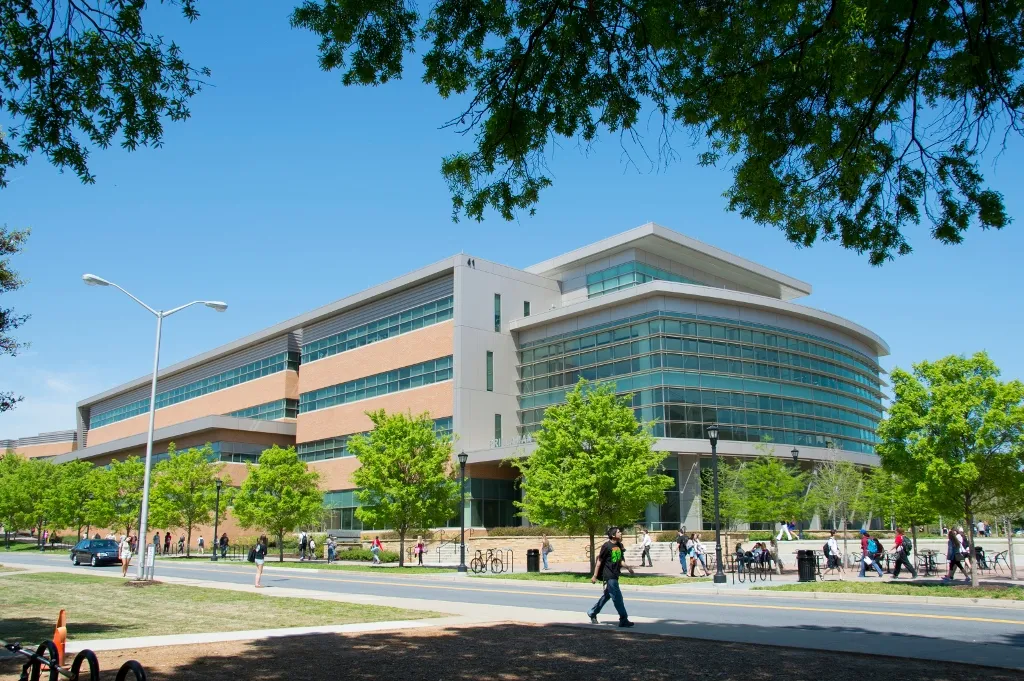Neuro Physiotherapy Rehab
Neurological physiotherapy is a special physiotherapy area focusing on treatments of anindividual with neurological conditions.

Neurophysiotherapy Rehab
At Physiotattva, we offer specialised neurophysiotherapy to address the unique needs of individuals dealing with neurological conditions. Whether you're recovering from a stroke, managing Parkinson’s disease, or coping with a brain injury, our neurological physical therapy services are designed to restore movement, improve strength, and enhance overall function. Using advanced neurological rehabilitation physiotherapy techniques, our expert therapists develop personalised treatment plans tailored to your goals. From neuro rehab physio sessions that target muscle weakness and impaired coordination to targeted interventions for improving balance and gait, we work with you every step of the way to maximise your recovery and regain independence. This makes Physiotattva a trusted choice for expert-guided neuro rehab physio that focuses on holistic recovery.
Managing Diabetic Neuropathy with Physiotherapy
An empowering recovery story of overcoming diabetic neuropathy through consistent therapy and care. Watch how movement, support, and persistence made all the difference.
What is Neurological Physiotherapy
Neurological physiotherapy is a specialised field within physiotherapy for neurological disorders that focuses on diagnosing and treating individuals with conditions that affect the central nervous system, such as stroke, multiple sclerosis, Parkinson's disease, and spinal cord injuries. This form of neurological physical therapy aims to improve movement, functional abilities, and the overall quality of life for patients. Neurophysiotherapy utilises evidence-based approaches and therapeutic exercises to address challenges such as muscle weakness, poor coordination, balance issues, and sensory deficits. Treatment plans are customised to meet the specific needs of the patient, focusing on restoring mobility, enhancing motor control, and alleviating pain and spasticity. The primary goal is to help individuals regain independence and improve their capacity to perform daily tasks through neurological rehabilitation physiotherapy.
Our team specialises in delivering personalised physiotherapy for neurological disorders, ensuring patients get the right care at every stage.
How Does Neurological Physiotherapy Work
Neurological physiotherapy utilises a systematic approach to address the specific needs of individuals with neurological conditions. It begins with a comprehensive assessment to evaluate movement, strength, coordination, and functional abilities. Based on this evaluation, a tailored treatment plan is created, which may include neurological physical therapy techniques like balance training, strengthening exercises, and manual therapy to improve mobility and address muscle imbalances. The plan also integrates neurodevelopmental facilitation and motor learning strategies to promote neuroplasticity, enhancing the brain's ability to adapt and recover. Progress is carefully monitored by the therapist, who adjusts the treatment as needed to ensure the best outcomes. Collaboration with the patient’s family and healthcare team is vital, as neuro rehab physio focuses on educating and empowering all parties involved to foster active participation and long-term success in the rehabilitation journey.
Types of Neurophysiotherapy Rehab Services
Neurophysiotherapy Rehab services offer various treatments specifically designed to address movement disorders caused by neurological conditions. These services are tailored to the individual’s needs and aim to improve mobility, strength, and overall functional recovery. Some of the key services include:
- Mobility Aids in Neurophysiotherapy: This service involves expert guidance on the use of walking aids, such as walking frames and canes, to enhance mobility and independence. Neuro physiotherapists assess the patient’s specific needs and recommend the most suitable mobility aids, ensuring proper usage to prevent injury and promote safe movement.
- Mobilisation in neurophysiotherapy: This includes assistance with movement in bed, standing, sitting, or walking. Neurophysiotherapy mobilisation techniques help improve joint flexibility and encourage safe, functional movements for patients who have limited mobility due to neurological conditions.
- Circulation and Breathing Exercises: These exercises are aimed at improving circulation and preventing vascular complications, such as deep vein thrombosis (DVTs), and respiratory issues like chest infections. The exercises also enhance lung capacity and overall respiratory function, which is crucial for individuals with neurological impairments.
- Neurophysiotherapy Bed Exercises: For individuals who are bed-bound or have limited mobility, bed exercises are prescribed to safely strengthen muscles, improve flexibility, and maintain joint health. These exercises are essential for preventing muscle atrophy and promoting circulation in individuals with severe mobility limitations.
- Splinting or Positioning: This service focuses on ensuring proper limb posture and preventing deformities by using splints and positioning aids. Correct limb positioning helps prevent joint contractures (tightening), ensures better alignment, and supports muscle function, particularly for patients with spasticity or muscle weakness.
- Passive Limb Exercise: When patients are unable to move their limbs independently, passive limb exercises are used to maintain range of motion and prevent stiffness. These exercises are performed by a therapist who gently moves the patient's limbs through their natural range of motion, helping to maintain muscle and joint health.
Common Conditions Treated in Neurological Physiotherapy
Neurological Physiotherapy is dedicated to treating a range of physical impairments caused by neurological conditions. These include:
Post-polio Syndrome
Post-polio syndrome is a condition that affects individuals who previously had polio. Neurological physiotherapy plays a crucial role in treating post-polio syndrome by concentrating on enhancing muscle strength, endurance, and mobility. The therapeutic approach encompasses targeted exercises for specific muscle groups, balance enhancement, gait retraining, and guidance on conserving energy. Moreover, physiotherapists provide education regarding activity pacing and the use of assistive devices to promote greater independence in daily activities. The ultimate objective is to optimise physical capabilities, alleviate symptoms, and enhance the overall quality of life for individuals with post-polio syndrome.
Guillain–Barré syndrome (GBS)
Guillain-Barré syndrome is a neurological disorder characterised by sudden muscle weakness or paralysis. Neurological physiotherapy is vital in managing Guillain-Barré syndrome by preserving muscle strength, improving mobility, and facilitating functional recovery. Treatment typically involves exercises to maintain muscle tone, range of motion exercises, gait training, and activities to enhance balance and coordination. Additionally, respiratory exercises may be incorporated to support respiratory function.
Stroke Recovery
Stroke recovery is a crucial focus of neurological physiotherapy. Through targeted interventions, neurological physiotherapists aid in the rehabilitation process by improving mobility, balance, coordination, and strength. Treatment may involve exercises to restore muscle function, gait training, functional activities, and retraining of daily living skills. Therapists also make sure to address any sensory and cognitive impairments. Neurological physiotherapy uses evidence-based techniques to improve functional outcomes and enhance independence in stroke recovery.
Cerebral Palsy
Cerebral Palsy is a neurological condition characterised by movement and muscle coordination challenges. Neurological physiotherapy plays a vital role in managing cerebral palsy by concentrating on enhancing motor skills, muscle strength, and mobility. The treatment approach involves targeted exercises to improve muscle tone and control, activities to enhance balance and coordination, gait, and functional training. Furthermore, therapists may recommend assistive devices and adaptations to optimise daily functioning.
Parkinson's Disease
Parkinson's is a neurodegenerative disorder characterised by movement difficulties, tremors, and muscle stiffness. Neurological physiotherapy is vital in managing Parkinson's disease by improving mobility, balance, and overall functional abilities through exercises that enhance muscle strength, flexibility, coordination, and strategies to manage movement symptoms.
Dementia
Dementia is a progressive neurological disorder characterised by the gradual decline of cognitive function and memory loss. Neurological Physiotherapy helps patients deal with the mobility issues that come with Dementia, as the disease can cause a loss of balance and strength. This can be tackled through exercises that can improve the latter and reduce the risk of falls.
Chronic Pain
Neurological physiotherapy offers valuable strategies to manage chronic pain. Therapists employ various techniques to address pain, such as manual therapy, therapeutic exercises, and modalities like heat or cold therapy. They focus on restoring functional movement, improving posture, and promoting relaxation. Education about pain management, self-care strategies, and ergonomic modifications is provided to empower individuals in coping with pain.
Benefits of Neurological Physiotherapy
Neurological physiotherapy offers a wide range of benefits for individuals with neurological conditions. Here are some key advantages:
- Improved Mobility: Neurological physiotherapy aims to enhance mobility and functional abilities. Therapists utilise mobility exercises, gait training, and balance activities to improve strength, coordination, and balance, ultimately increasing independence in daily activities.
- Enhanced Motor Skills: Neurological physiotherapy helps individuals develop and regain motor skills affected by neurological conditions by employing specific techniques like neurodevelopmental facilitation and motor learning principles. This can improve movement control, coordination, and overall motor function.
- Pain Management: Neurological physiotherapists employ various strategies to address pain associated with neurological conditions. They use manual therapy techniques, therapeutic exercises, and modalities to reduce pain, improve physical function, and enhance the quality of life.
- Improved Posture and Alignment: Neurological conditions can affect posture and alignment. Physiotherapists work on correcting postural imbalances, enhancing alignment, and promoting proper body mechanics. This can help prevent secondary complications and improve overall body posture and alignment.
- Enhanced Balance and Fall Prevention: Balance impairments and an increased risk of falls are common in neurological conditions. Neurological physiotherapy focuses on balance training, coordination exercises, and proprioceptive training to improve balance and reduce the risk of falls.
Such evidence-based techniques highlight the importance of physiotherapy for neurological disorders in improving daily life and long-term well-being.
Neurophysiotherapy Rehab Treatments
Before you seek the help of a neurological physiotherapist, it’s essential to understand the various treatment options available. The following treatments are commonly incorporated into a comprehensive neurophysiotherapy approach:
- Balance re-education
- Strengthening
- Stretching out the muscles
- Gait re-education
- Electrical stimulation
- Joint mobilization
- Postural exercise
- Spasticity management
- Education or advice on fatigue management, exercise, and lifestyle.
Each of these treatments is carefully tailored to address the specific needs of the individual, ensuring that rehabilitation is as effective and comprehensive as possible. Whether you are recovering from a stroke, managing Parkinson’s disease, or dealing with another neurological condition, these treatments work together to improve mobility, strength, and function. By consulting with an experienced neuro physiotherapist, you can develop a personalised plan that not only targets your current symptoms but also promotes long-term recovery and quality of life.
When to See a Neuro Physiotherapist
You should consider consulting a neuro physiotherapist if you experience any of the following conditions or symptoms:
- Spinal cord injury: If you are struggling with movement or have difficulty walking independently.
- Bell’s Palsy: If you experience facial weakness or paralysis affecting your ability to perform daily tasks.
- Parkinson’s Disease: If you have difficulty with balance, coordination, or movement due to the progressive nature of the disease.
- Multiple Sclerosis (MS): If you experience muscle weakness, coordination problems, or impaired mobility due to MS.
- Neurological conditions impacting mobility: If you notice a decline in your ability to move or perform activities of daily living, seeking a neurophysiotherapy consultation can help restore function and independence.
If you’re facing any of these challenges, it's important to seek neurological physiotherapy at the earliest opportunity. Our expert therapists in Bangalore and Hyderabad specialise in restoring mobility and improving quality of life through personalised treatment plans.
Neurological Physiotherapy Integration at Physiotattva
Experience the seamless integration of neurological physiotherapy at Physiotattva. With world-class infrastructure and cutting-edge facilities, our specialised therapists deliver personalised care for neurological conditions. Book an appointment today and benefit from our state-of-the-art equipment, spacious treatment areas, and multidisciplinary approach to optimise your rehabilitation outcomes.
At Physiotattva physiotherapy clinics in Bangalore and Hyderabad, you receive personalised care tailored to your specific needs, ensuring effective results and comfort throughout your journey to recovery.
Don’t wait to start your recovery! Get in touch with Physiotattva for more details! Contact us at +91 89510 47001.
Frequently Asked Questions
What does a neuro physiotherapist do?
How long will it take for the physiotherapy to work?
What are the top common nervous system disorders?
Related Services
Related Conditions
Related Treatments
Related Symptoms
Related Therapies
Our Professionals
Physiotherapy in Bangalore
Related Blogs
Get In Touch

















%20(1)-p-3200.jpeg)


.jpg)
.webp)
.webp)
.webp)

